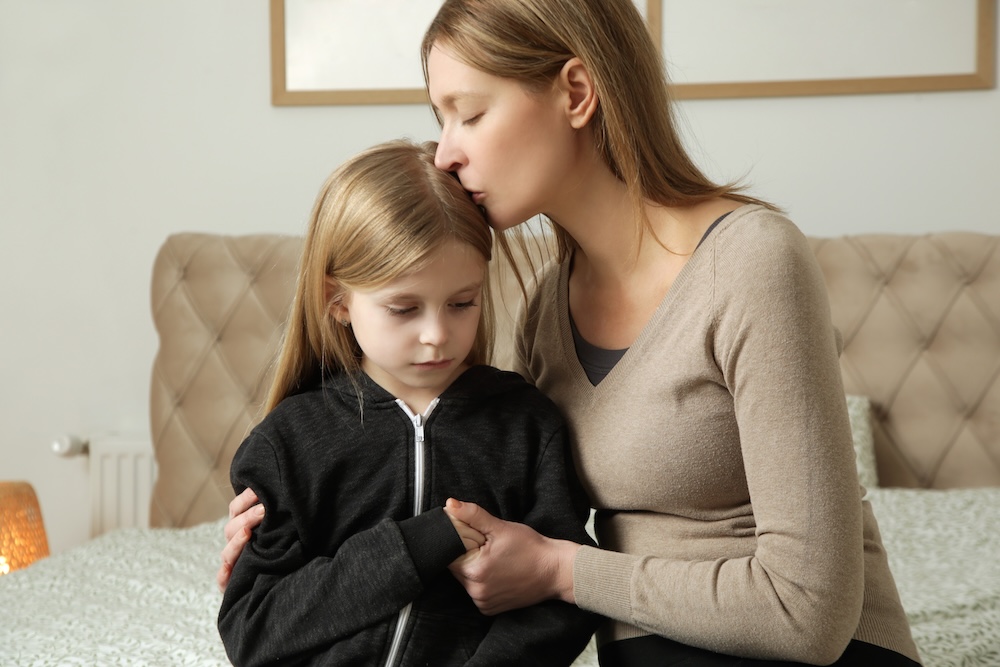Divorce stress and anxiety is to be expected. But things can get a lot more stressful if you are dealing with a challenging co-parent. Balancing the responsibilities of raising a child with another person, who may have different parenting styles and perspectives isn’t easy.
Here is what one woman going through a divorce wrote to me:
Co-parenting wasn’t supposed to feel this heavy, but here I am – stressed, overwhelmed, and feeling like I’m always one step away from losing it. How do I take care of myself without feeling guilty??
Focusing on self-care can help you manage this stress and maintain your well-being.
Here are ten self-care strategies to cope with divorce stress and anxiety fueled by a difficult co-parent:
- Practice Mindfulness
Mindfulness involves being fully present in the moment, aware of your thoughts and feelings without judgment. It can help reduce stress and improve your overall well-being. As Jon Kabat-Zinn, a mindfulness expert, says, “Mindfulness is a way of befriending ourselves and our experience.” By practicing mindfulness, you can learn to observe your thoughts and emotions without getting overwhelmed by them. This can be particularly helpful in stressful coparenting situations, allowing you to respond calmly and thoughtfully rather than reacting impulsively. - Try Meditation
Meditation can be a powerful tool for managing stress. A simple meditation involves sitting quietly, focusing on your breath, and gently bringing your mind back when it wanders. Even a few minutes a day can make a difference. For example, you can try a short meditation where you sit comfortably, close your eyes, and take deep breaths. Focus on the sensation of your breath entering and leaving your body. If your mind starts to wander, gently bring your focus back to your breath. This practice can help calm your mind and reduce stress. - Exercise Regularly
Physical activity, especially cardio, can help clear your mind and improve your mood. Exercise releases endorphins, which are natural mood lifters. Even a brisk walk can be beneficial. As Dr. John Ratey, a psychiatrist, notes, “Exercise is the single best thing you can do for your brain in terms of mood, memory, and learning.” Whether it’s running, cycling, swimming, or simply taking a walk in the park, regular exercise can help you manage stress and feel better overall. - Opt Out of Negative Behavior
Notice what you can do to “opt out” of your coparent’s behavior and not attach to their point of view. This can help you maintain your peace and focus on what you can control. For example, if your coparent is being argumentative or critical, you can choose not to engage in the negativity. Instead, focus on your own actions and responses. By not attaching to their point of view, you can reduce your stress and maintain a more positive outlook. - Get Plenty of Rest
Adequate sleep is crucial for managing stress and maintaining your health. Aim for 7-9 hours per night to help your body and mind recover. Lack of sleep can exacerbate stress and make it harder to cope with daily challenges. Establish a regular sleep routine, create a relaxing bedtime environment, and avoid stimulants like caffeine before bed to improve your sleep quality. - Do Something Fun
Engage in activities that bring you joy and relaxation. Whether it’s a hobby, a favorite sport, or spending time with friends, having fun is essential for your well-being. Taking time to do something you enjoy can provide a much-needed break from the stresses of coparenting and help you recharge. It can be as simple as reading a book, watching a movie, or going out for a meal with friends. - Be Flexible and Resilient
Remind yourself that flexibility and resilience often lead to greater happiness. As Charles Darwin said, “It is not the strongest of the species that survive, nor the most intelligent, but the one most responsive to change.” Coparenting often requires adaptability and the ability to handle unexpected situations. By being flexible and resilient, with good boundaries, you can navigate challenges more effectively and maintain a positive outlook. - Be Kind to Yourself
You don’t have to be perfect. Self-compassion is key. As Kristin Neff, a self-compassion researcher, states, “Self-compassion involves treating yourself the way you would treat a friend who is having a hard time.” Be gentle with yourself and acknowledge that it’s okay to make mistakes. Treat yourself with the same kindness and understanding that you would offer to a friend in a similar situation. - Surround Yourself with Positive People
Spend time with people who support you and avoid those who seek drama. Positive relationships can provide emotional support and reduce stress. Surrounding yourself with supportive friends and family can help you feel more connected and less isolated. Avoiding negative or toxic relationships can also reduce stress and improve your overall well-being. - Seek Professional Support
If you need more help, consider coaching or therapy. Asking for help is a sign of strength, not weakness. As Wayne Dyer said, “Asking for help is not a sign of weakness. It’s a sign of strength.” A professional can provide guidance, support, and strategies for managing stress and improving your coparenting relationship. Whether it’s individual therapy, couples counseling, or coaching, seeking professional support can be a valuable resource.
Join the 21-Day Mental Wellness Challenge
If managing co-parenting stress feels overwhelming, consider joining my 21-Day Mental Wellness Challenge this month. Each day, i’ll be sharing a simple prompt to help you ground yourself, release stress, and reconnect with what truly matters. It’s 21 days of intentional actions that can lead to lasting habits. Follow along in my stories on social media or reach out on Instagram to get started.
Remember, taking care of yourself is not only beneficial for you but also for your child. When you are healthy and happy, you are better equipped to provide the love and support your child needs.





















